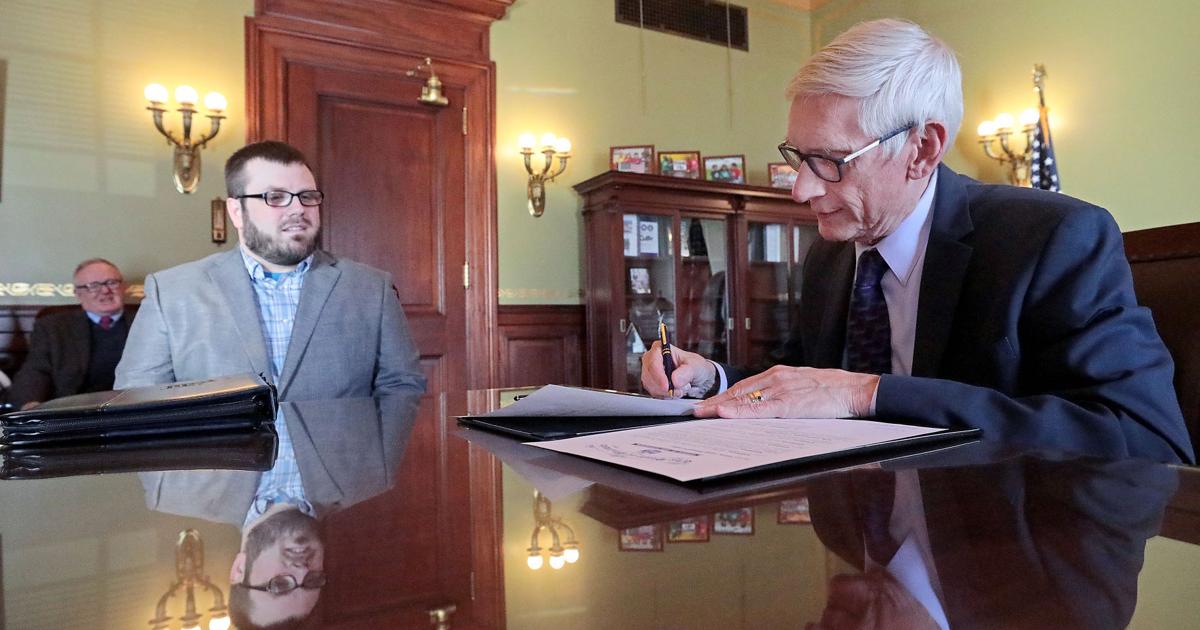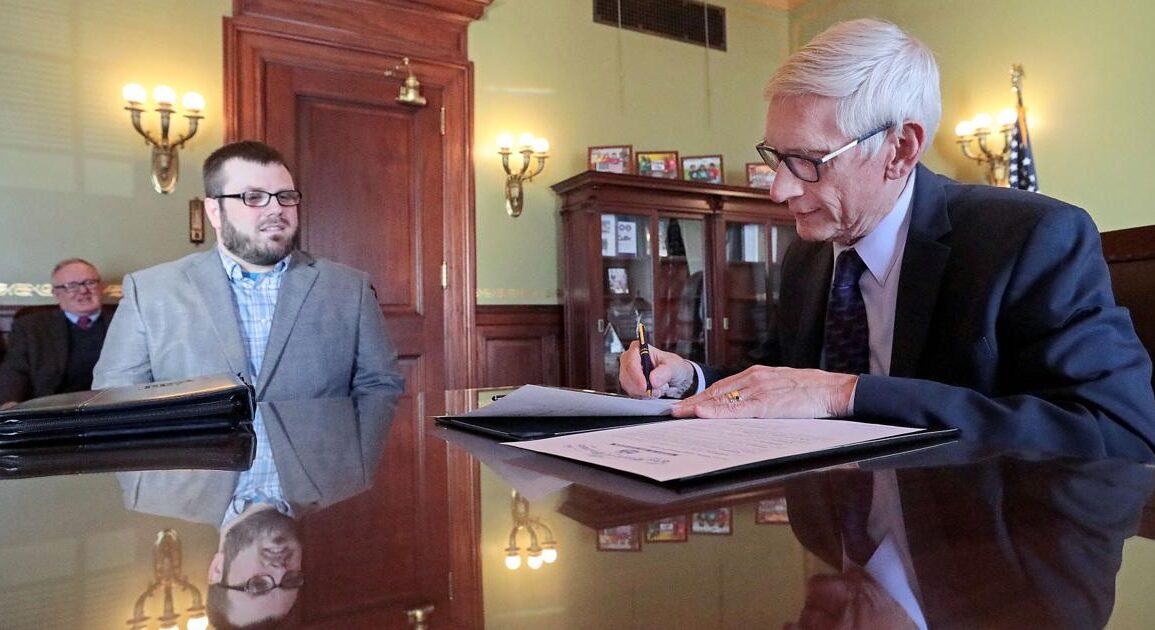
There are so many reasons to celebrate the fact that Tony Evers is governor of Wisconsin, and that the veteran educator and former superintendent of public instruction will continue to serve as the state’s top executive for another three years.
Where to begin?
At the front of the list, there should be recognition of the fact that Evers grants pardons. A lot of them. Just before Thanksgiving, the governor issued 82 new pardons, bringing the total number he has granted since becoming governor to 1,111.
That’s 1,111 more than were issued by his predecessor, defeated former Gov. Scott Walker.
Of all the noxious policies, partisan strategies and destructive schemes that made Scott Walker the most damaging Wisconsin governor in modern times, few were more offensive than the Republican political careerist’s refusal to grant pardons.
Through eight years of self-serving decision-making and self-righteous pontificating, Walker never found it in his heart to honor pleas for forgiveness from Wisconsinites who had made mistakes and simply wanted to get their lives back on track.
Walker had broad powers under the Wisconsin constitution to pardon individuals convicted of crimes. He also had precedent on his side, as previous governors had regularly embraced opportunities to issue pardons as official acts of forgiveness that restored rights lost when Wisconsinites were convicted of felonies.
Gubernatorial pardons have never been “get out of jail free” cards. They do not expunge court records, and they do not necessarily restore reputations. They simply acknowledge that a debt has been paid to society and confer on the pardoned individual the right to run for and hold public office, the right to serve on a jury and the right to obtain professional licenses.
Yet Walker refused to entertain remission. For some of the former governor’s critics, this seemed to be just one more item on the list of indignities associated with a governor who used his position to attack public employees, public schools, public services, Medicaid, high-speed rail service, expanded access to broadband internet for rural regions, conservation programs, fair elections, voting rights and the Wisconsin Idea.
But Walker’s failure to issue pardons was especially egregious. Pardons do not merely allow people who have completed their sentences to reenter society as active and engaged citizens. They also help to make the criminal justice system work by holding out the promise of forgiveness for those who are serving time.
Experts on criminal justice issues at the Brennan Center have long argued, “When it comes to reducing our prison populations … this power (to grant reprieves and pardons) should be used more frequently as a vital mechanism of mercy, tempering the often harsh, racist, and inequitable effects of our criminal legal system.”
That’s not a new or radical idea. Martha Minow, a former dean of the Harvard Law School, reminds us, “Legal systems going back to Hammurabi’s Code and the Jubilee in the Bible have recognized that there needs to be a reset, a start over.”
In modern times, the power to pardon in the United States has rested with elected executives at the federal and state levels of government. This isn’t necessarily the best system — as was noted when former President Donald Trump pardoned lawbreaking associates and reportedly explored the notion of pardoning himself.
Minow has argued: “It would be a better world if we develop guidelines for the use of that power. There are other countries that don’t leave that power simply in the hands of one person. The pardon power is one in particular where there’s great risk of abuse, due to the access that those with more power or visibility have.”
That makes sense.
But for now the system we have in Wisconsin puts the power to grant forgiveness in the hands of the governor. Luckily, after eight years of Walker, we now have a governor who respects that power.
Evers restarted Wisconsin’s pardon process in 2019, after it ground to a halt under Walker. The former governor had refused to appoint anyone to the state advisory board that reviewed pardons, effectively shutting down the process altogether. Walker never seriously considered the thousands of applications that were filed during his tenure and answered questions about his neglect with a glib declaration that, “I just look at (granting pardons) and say that’s not really why I ran for office.”
Unlike Walker, Evers ran for governor as a serious individual who was prepared to take on all the responsibilities associated with the office — including the maintenance of Wisconsin’s pardon system.
Since taking office, he has issued so many pardons at such a steady rate that he has surpassed the record established by former Gov. Julius Heil, a Republican who issued 943 pardons between 1939 and 1943. And Evers has done so proudly, declaring, “It continues to be a privilege to hear about individuals’ lives, work, and what they have done to overcome their past mistakes and build positive, rewarding lives for themselves and their families.”
Scott Walker never chose to uphold his oath of office, which required him to “faithfully and impartially discharge the duties of the office of governor.” He was more than ready to exercise the powers of the office when it came to doing the bidding of out-of-state campaign donors, scoring political points and trying to position himself to mount his failed bid for the presidency.
But he couldn’t be bothered to oversee the pardon process, as that would have required due diligence, and a measure of humanity that he could not muster.
That’s one of the many reasons why Walker is no longer Wisconsin’s governor.
That’s also why, thankfully, the voters of Wisconsin have given Tony Evers the authority to issue all these pardons. And why he will keep issuing them for years to come.
This post was originally published on this site be sure to check out more of their content.







